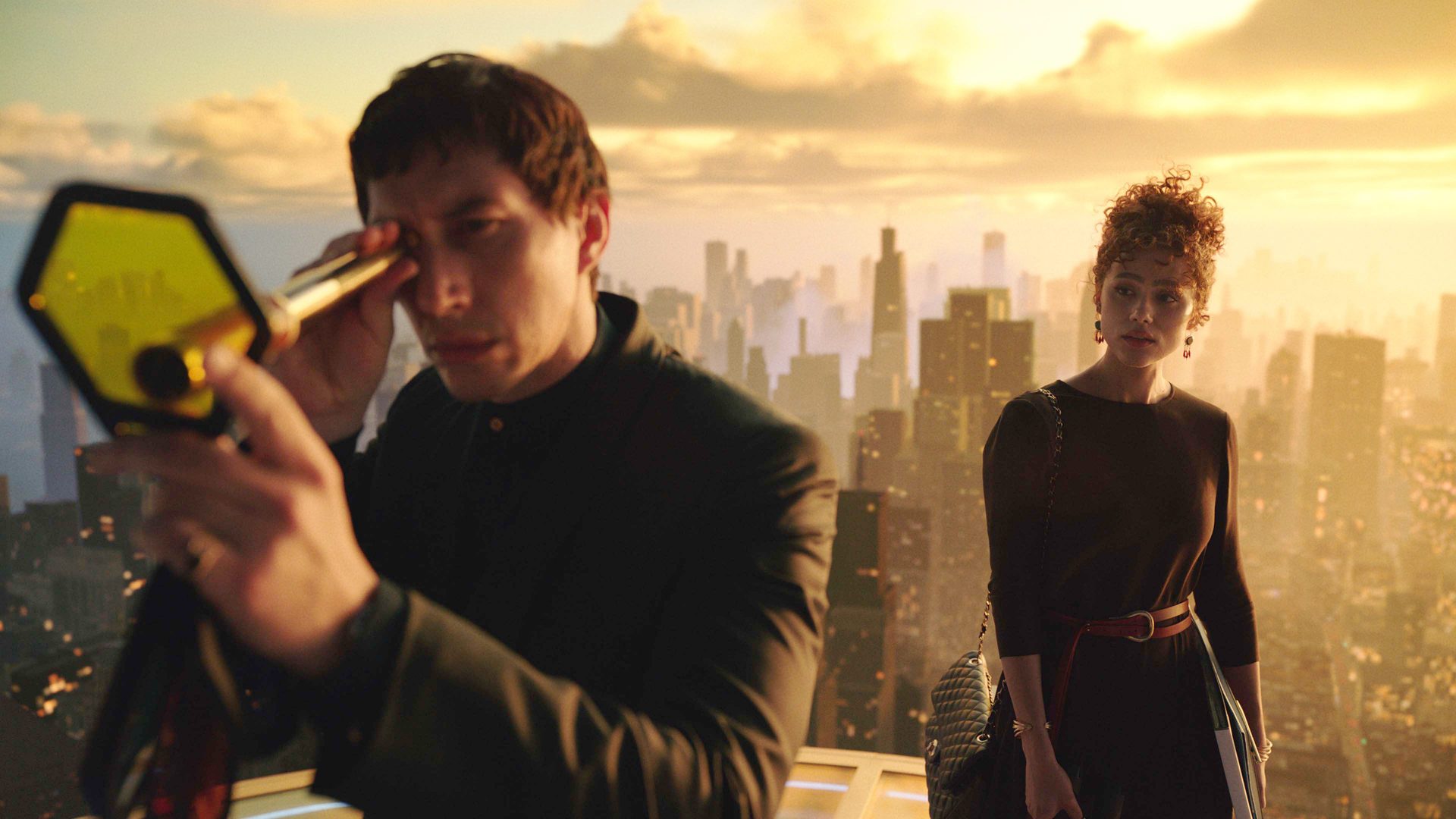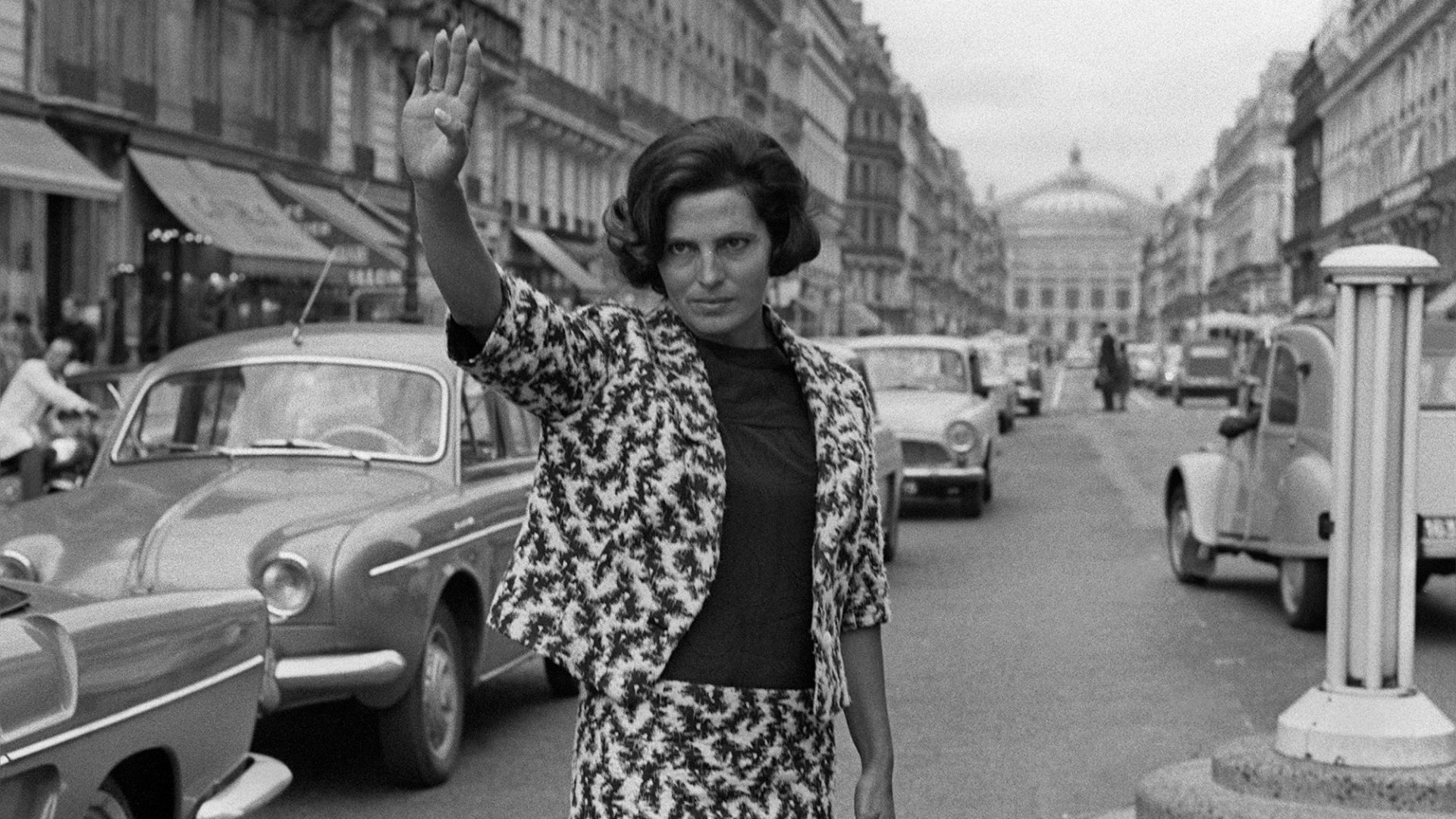PICK OF THE WEEK
MEGALOPOLIS
General release
Portentous, grandiose, prolix, self-indulgent, shamelessly lavish, flirting recklessly with incoherence: this only scratches the surface of what makes Megalopolis the extraordinary film that it is. Francis Ford Coppola has readily conceded that “there may be a period where it’s an apparent disaster”, and many of the early reviewers of his $120m self-funded movie, 40 years in the making, seem determined to help him fulfil that prophecy. Me? I loved every minute of it.
Loosely inspired by the Catilinarian Conspiracy against Cicero of 63BC (Coppola took notes from Mary Beard on a draft of the screenplay), Megalopolis reimagines Manhattan as “New Rome” and pits Cesar Catilina (Adam Driver), a visionary urban planner who also, handily, has the power to bend time and has discovered a miraculous new building material, against the city’s mayor, Franklyn Cicero (Giancarlo Esposito), who wants practical infrastructure. The spirit of Robert Moses, the master-builder of 20th century New York and the subject of Robert Caro’s classic biography, The Power Broker (1974), looms over the movie.
To compound the tension – and much to the fury of creepy populist Clodio Pulcher (Shia LaBeouf) – the mayor’s daughter, Julia (Nathalie Emmanuel) and Cesar fall in love.
Meanwhile, Clodio’s grandfather, the Trumpesque head of Crassus National Bank, Hamilton Crassus III (Jon Voight) marries Wow Platinum (Aubrey Plaza), a scheming TV presenter who, at the beginning of the movie, is still Cesar’s lover.
The drama unfolds against a cityscape that merges Rome and Manhattan: part neo-classical magnificence, part Studio 54 (or should that be Studio LIV?). Madison Square Garden is a proxy Colosseum. Time magazine is renamed Tempus.
The erudition of the film is as self-conscious as it is breathtaking: James Joyce’s Ulysses, Ayn Rand’s The Fountainhead, Ralph Waldo Emerson, Goethe, Petrarch, Marcus Aurelius… and that’s before you get to the countless cinematic references. Megalopolis is not so much culturally eclectic as omnivorous.
Like Coppola’s Godfather trilogy (1972, 1974, 1990) and Apocalypse Now (1979), it is a movie about America and its decline; specifically, in this case, the role of art in maintaining a civilisation. In the current Sight and Sound, the director observes that “today, America’s going through how Rome lost its republic. It’s uncanny. We could end up with a dictator or with an emperor, you know”.
Contemporary culture is not hospitable to epic swashbucklers like Coppola. We prefer podcasts about failure to heroic failures. We huddle behind the well-behaved, ideologically obedient novels of Sally Rooney rather than the hell-for-leather mega-texts of the magic realist era.
But he really doesn’t care. Aged 85, he’s still taking gigantic aesthetic risks, as much as he was half a century ago – and he’s sufficiently conscious of his place in the pantheon of cinematic gods to know that the immediate reaction to Megalopolis doesn’t matter very much. Thank goodness that age has not mellowed this great auteur. A man’s reach should exceed his grasp, or what’s a heaven for?
THEATRE
LOOK BACK IN ANGER
Almeida Theatre, until November 23
On my way out of Atri Banerjee’s fine production, it occurred to me that John Osborne’s classic play is now 68 years old. To put it another way: 68 years before Kenneth Tynan wrote in the Observer that “I doubt if I could love anyone who did not wish to see Look Back in Anger”, Salisbury was prime minister and Victoria was on the throne.
However you cut it, this is now an old play and complaining about its microaggressions and outdated social attitudes is pointless. Jimmy Porter (Billy Howle, excellent), the original angry young man, is dismayed by what he sees as the personal and political docility of his wife Alison (Ellora Torchia) and his best friend Cliff (Iwan Davies), at whom he rages: “You’ve no intellect, no curiosity. It all just washes over you. Am I right?”
As Alison’s friend, Helena (Morfydd Clark) observes, Jimmy “was born out of time”. And yes: he is, in one sense, just waiting for the Sixties to happen. But this is not what Helena means. Jimmy, she suggests, “is still in the middle of the French Revolution”. Alison prefers to see her husband as an “Eminent Victorian”, the type identified by Lytton Strachey. He is both frustrated prototype and furious nostalgist.
Which would he be today? That is the question that this intelligent revival poses with great subliminal impact. Imaginative, too, of the Almeida to run it alongside Arnold Wesker’s Roots (1958), directed by Diyan Zora.
CINEMA
THE OUTRUN
Selected cinemas
Nora Fingscheidt’s adaptation of Amy Liptrot’s 2016 memoir maps the tribulations of addiction and recovery on to the power of place and nature – with dazzling results. Wrecked by her alcoholic partying in London, Rona (Saoirse Ronan, superb) goes home to Orkney in search of respite with her devout mother Annie (Saskia Reeves) and bipolar father Andrew (Stephen Dillane), who runs the family farm and lives alone in a caravan.
At first, as Rona dwells miserably upon her break-up with Daynin (Paapa Essiedu), it is all a poor substitute for London. Underpinning her shaky sobriety is a terror that she is beyond fixing. What follows, however, is not repair but psychic realignment.
Moving even further afield to the tiny island of Papa Westray, she gradually reconnects with her roots; the ritual, myths and elemental magnificence of the Orcadian landscape. The Outrun is too sophisticated a movie to offer glib resolution, but its disclosure of the primal connection between waves and raves is spellbinding. Don’t miss Jason Solomons’s brilliant article on the film in last week’s TNE.
BOOK
ON FREEDOM
By Timothy Snyder
The Bodley Head
Kamala Harris’s emphasis in her presidential campaign upon freedom has turbo-charged the (already growing) enthusiasm of progressives to reclaim this political idea from the Right. In April, Joseph E Stiglitz published The Road to Freedom: Economics and the Good Society, and now Yale historian Timothy Snyder – perhaps the world’s most revered political scientist – offers his own account.
His intellectual starting point is that “negative freedom” – freedom from intrusion, interference, coercion – is insufficient as the basis for a successful liberalism. There are, he contends, five elements to true freedom: “sovereignty”, the basic conditions that individuals need to make meaningful choices; “unpredictability”, the freedom to act outside the constraints of government and algorithm; “mobility” the capacity of people to “break free of the structures (and people) that allowed them to become [sovereign]”; “factuality”, the “grip on the world” provided by, among other things, accurate news; and “solidarity”, the recognition that freedom is for all.
Part political tract, part travelogue, part memoir, part war report (much of it is set in Ukraine), On Freedom is extremely readable and admirably provocative. At every turn, Snyder urges us to consider liberty in physical and human rather than abstract or cybernetic terms.
“Better than raging against the machine is reading against the machine,” he writes. “Search engines make you more mechanical: library shelves make you less so”. He encourages his reader to “accommodate yourself to tender virtues and bruising facts”.
In this dangerous world, we surely need both. Towards the end of the book, written in the Kherson region of Ukraine, he notes en passant that “the place I had chosen to work had been hit by a rocket”. A book grounded in experience as well as learning, On Freedom is a remarkable addition to the library of liberalism.




